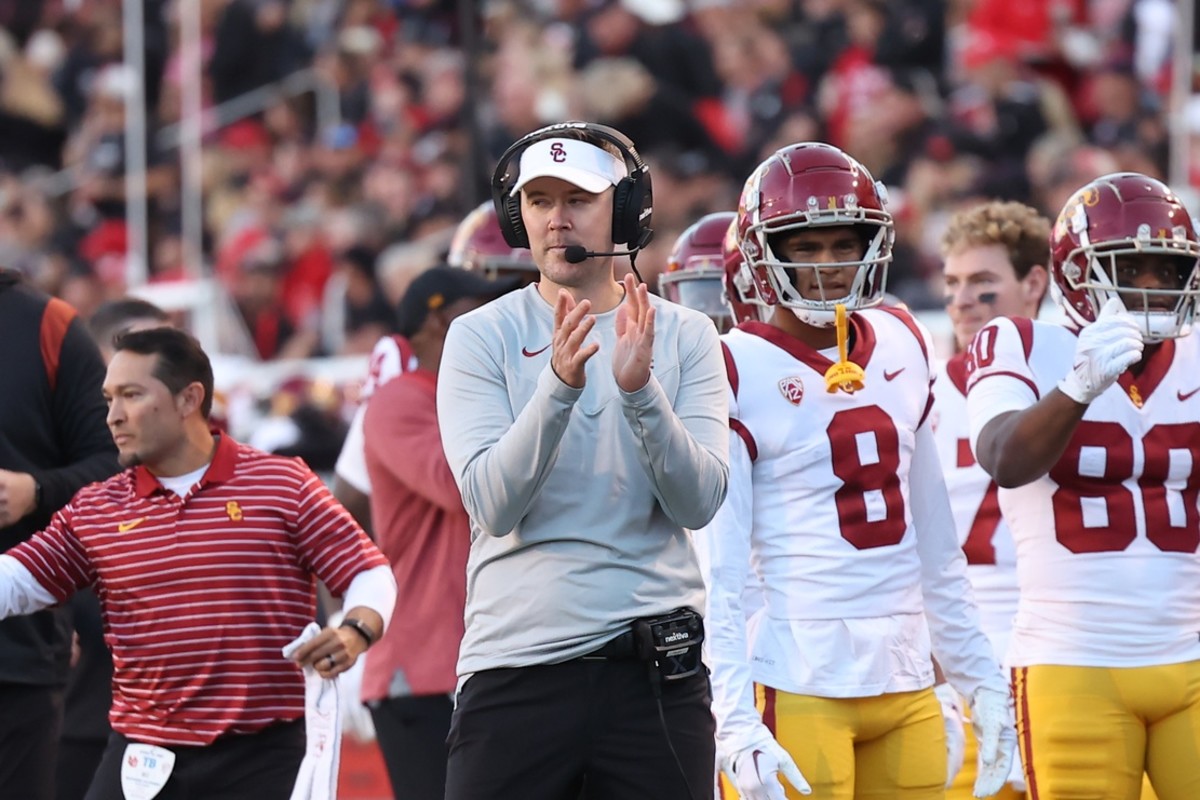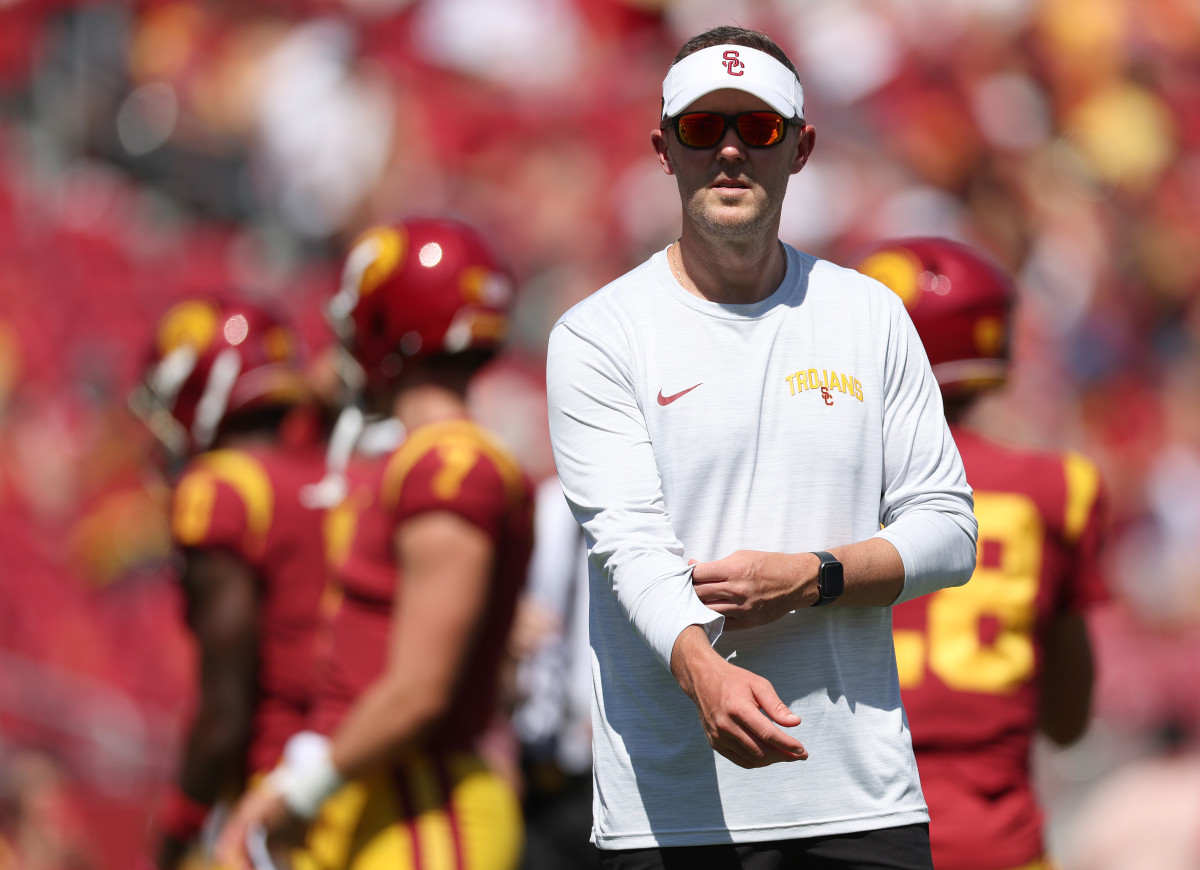Lincoln Riley has emerged as one of the most transformative figures in modern college football. His innovative strategies, meticulous game planning, and ability to develop elite quarterbacks have redefined the sport's competitive landscape. Riley's impact is not only felt on the field but also in shaping the future of college football as a whole.
From his early days as an offensive coordinator to becoming one of the most sought-after head coaches in the nation, Lincoln Riley's journey is nothing short of remarkable. His career is characterized by an unrelenting pursuit of excellence and an unwavering commitment to pushing the boundaries of what is possible in college football.
This article delves into the life, career, and achievements of Lincoln Riley, exploring how he has become the architect of modern college football success. We will examine his coaching philosophy, his impact on player development, and the legacy he continues to build.
Read also:How To Say I Guess In Spanish A Fun And Informal Guide For Everyday Conversations
Table of Contents
- Biography
- Early Career
- Oklahoma Years
- Coaching Philosophy
- Quarterback Development
- Recruiting Success
- USC Trojans Transition
- Impact on College Football
- Challenges and Criticism
- Legacy
Biography
Lincoln Riley was born on September 26, 1983, in Little Rock, Arkansas. Growing up, Riley was deeply passionate about football and quickly developed a keen interest in the intricacies of the game. His journey from a young enthusiast to one of the most respected coaches in college football is a testament to his dedication and talent.
Early Life and Education
Riley attended Pulaski Academy in Little Rock, where he excelled both academically and athletically. He later attended East Texas Baptist University, where he played quarterback for the Tigers. After his playing career, Riley transitioned into coaching, beginning his journey as a graduate assistant at ETBU.
Professional Career
Riley's professional career took off when he joined the East Texas Baptist staff full-time. His rapid rise through the ranks was fueled by his innovative approach to offensive schemes and his ability to connect with players.
| Full Name | Lincoln Riley |
|---|---|
| Date of Birth | September 26, 1983 |
| Place of Birth | Little Rock, Arkansas |
| Education | East Texas Baptist University |
| Position | Head Coach |
Early Career
Riley's early career was marked by his rapid ascent in the coaching world. After his time at East Texas Baptist, Riley joined the staff at East Tennessee State University, where he worked as a quarterbacks coach. His innovative offensive schemes and ability to develop quarterbacks quickly caught the attention of larger programs.
Breakthrough at East Tennessee State
During his tenure at East Tennessee State, Riley helped transform the program's offense, implementing a high-tempo, spread offense that emphasized speed and precision. This experience laid the foundation for his future success and earned him recognition in coaching circles.
Oklahoma Years
Lincoln Riley's tenure at the University of Oklahoma is often regarded as the defining period of his career. As the offensive coordinator and later the head coach, Riley revolutionized the Sooners' offense and established himself as one of the top coaches in the nation.
Read also:Betty Yo A Usted La Amo Meme The Ultimate Guide To This Viral Sensation
Revolutionizing the Offense
Under Riley's guidance, Oklahoma's offense became a juggernaut, consistently ranking among the top offenses in college football. His ability to adapt and innovate kept defenses guessing, leading to numerous records and accolades.
Coaching Philosophy
Riley's coaching philosophy revolves around adaptability, innovation, and player development. He believes in creating an offensive system that maximizes the talents of his players while staying ahead of the curve in terms of strategy and tactics.
Key Elements of Riley's Philosophy
- High-Tempo Offense: Riley emphasizes a fast-paced offense to keep defenses off-balance.
- Spread Formation: Utilizing multiple formations to exploit defensive weaknesses.
- Player Empowerment: Encouraging players to take ownership of their roles and make decisions on the field.
Quarterback Development
One of Riley's most notable achievements is his success in developing elite quarterbacks. Under his tutelage, players like Baker Mayfield, Kyler Murray, and Jalen Hurts have gone on to achieve great success both in college and in the NFL.
Factors Contributing to Success
Riley's approach to quarterback development includes a focus on mental toughness, decision-making, and technical skills. He tailors his coaching to fit the unique strengths of each player, ensuring they reach their full potential.
Recruiting Success
Riley's recruiting efforts have been instrumental in building powerhouse programs at both Oklahoma and USC. His ability to attract top talent is rooted in his reputation for developing players and providing them with opportunities to succeed.
Strategies for Success
- Building Relationships: Riley prioritizes building strong relationships with recruits and their families.
- Highlighting Opportunities: Emphasizing the potential for growth and success under his guidance.
- Program Vision: Presenting a clear vision for the future of the program and how recruits fit into that vision.
USC Trojans Transition
In 2021, Lincoln Riley made a bold move by accepting the head coaching position at the University of Southern California. This transition marked a new chapter in his career, as he sought to revive the once-dominant Trojan program.
Initial Challenges and Successes
Riley's arrival at USC brought immediate changes, including a renewed focus on recruiting and modernizing the offense. His impact was evident in the team's improved performance and increased excitement among fans and alumni.
Impact on College Football
Lincoln Riley's influence extends beyond his immediate teams. His innovative strategies and emphasis on player development have set new standards in college football, inspiring coaches across the nation.
Shaping the Future
Riley's contributions to the sport include the popularization of high-tempo offenses, the emphasis on quarterback development, and the integration of technology in coaching. His influence is likely to shape the future of college football for years to come.
Challenges and Criticism
Despite his many successes, Riley has faced challenges and criticism throughout his career. Critics have questioned his ability to sustain success at new programs and his reliance on certain offensive strategies.
Addressing Criticism
Riley addresses these criticisms by continually evolving his approach and adapting to the changing landscape of college football. His resilience and determination have allowed him to overcome obstacles and continue achieving success.
Legacy
Lincoln Riley's legacy in college football is already well-established. As the architect of modern college football success, his impact will be felt for generations to come. His commitment to excellence and innovation has set a new standard for coaching in the sport.
Looking Ahead
As Riley continues his career, fans and analysts alike eagerly await his next moves. Whether at USC or beyond, his influence on the game will undoubtedly remain a driving force in the evolution of college football.
Conclusion
Lincoln Riley's journey from a young coach to one of the most respected figures in college football is a testament to his talent, dedication, and vision. His innovative strategies, emphasis on player development, and recruiting prowess have redefined the sport and set new standards for success.
We invite you to share your thoughts on Lincoln Riley's impact on college football in the comments below. For more insights into the world of sports, be sure to explore our other articles and stay updated on the latest developments in college football.


